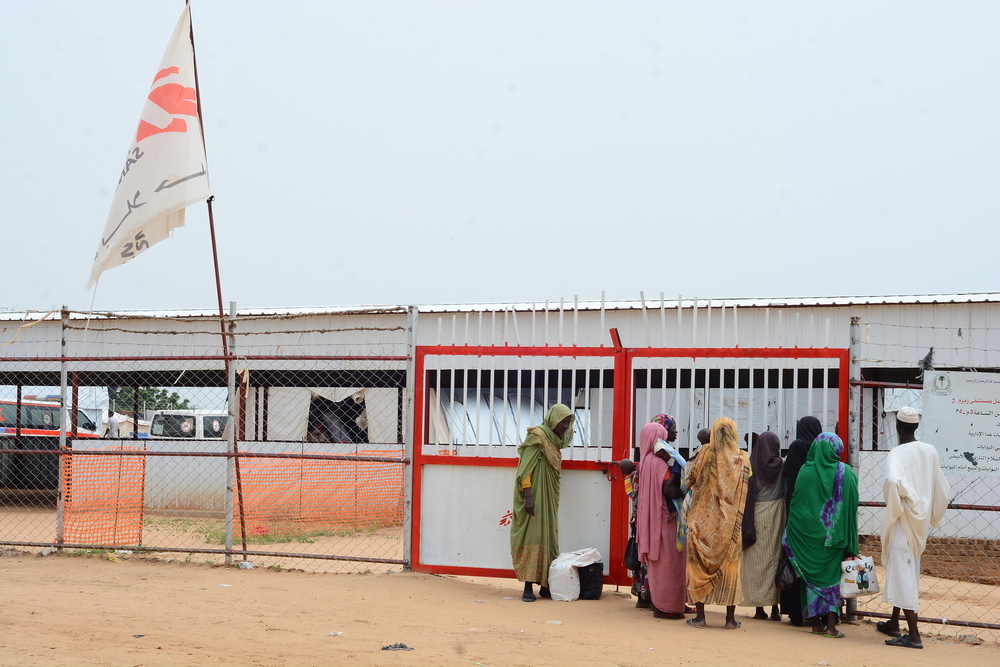Médecins Sans Frontières (MSF) MSF has halted its activities at the Zamzam camp in Sudan’s North Darfur due to the escalating violence.
MSF said in a press release on Monday that it was no longer possible to continue providing medical assistance in such dangerous conditions due to the escalation of attacks and fighting in and around Zamzam camp for the displaced people near El Fasher in North Darfur.
“Despite widespread starvation and immense humanitarian needs, we have no choice but to take the decision to suspend all our activities in the camp, including the MSF field hospital,” reads the press release.
It said that in the first three weeks of February, the MSF teams in Zamzam received 139 wounded patients in the field hospital, mostly suffering with gunshots and shrapnel injuries.
The hospital also helps tackle the massive malnutrition crisis unfolding in the camp, which was declared as undergoing famine conditions by the Integrated Food Security Phase Classification last year.
“Eleven patients died while in the MSF hospital, five of them children, because we could neither treat them properly nor refer them to Saudi hospital, the only facility with surgical capacity in nearby El Fasher.
“In January and December, two of our ambulances carrying patients from the camp to El Fasher were shot at. Now it is even more dangerous and as a result, many people, including patients requiring trauma surgery or emergency caesarian section, are trapped in Zamzam” the press release quotes Yahya Kalilah, MSF head of mission in Sudan.
The said area has seen heavy fighting between the Rapid Support Forces (RSF) and the Joint Forces, a coalition of armed groups allied with Sudanese Armed Forces (SAF), with dreadful consequences on civilians.
Besieging and shelling the town of El Fasher for the last 10 months, RSF have stepped up their offensive in recent weeks and launched attacks against Zamzam camp, in particular on February 11 and 12. People who were already struggling to survive now find their access to water and food even more compromised, as the central market has been looted and burnt down.
“Halting our project in the midst of a worsening disaster in Zamzam is a heartbreaking decision. During more than two years, our teams did their utmost to provide care against all odds, despite the siege, supply shortages, and multiple other challenges, calling and waiting for a scaled up humanitarian response which never materialised. However, as the battle for El Fasher rages on and now directly reaches Zamzam camp, the most minimal security conditions are currently not met for us to stay. The sheer proximity of the violence, great difficulties in sending supplies, the impossibility to send experienced staff for adequate support, and uncertainty regarding routes out of the camp for our colleagues and civilians leave us with little choice,” Kalilah is further quoted.
Hosting about 500,000 people, Zamzam camp saw new arrivals fleeing from Abu Zerega, Shagra and Saluma who were now staying in schools, community buildings, or under the trees in the open. The people reportedly told the MSF teams of dwellings set on fire, looting, sexual violence, killings, beatings and other abuses in villages and roads of El Fasher locality. Some hundred families also reached Tawila, sometimes barefoot after leaving everything behind and escaping horrific violence on their way.
MSF said it was deeply concerned about the safety of its staff and the thousands of people in Zamzam camp and urged RSF, the Joint Forces and all armed actors in the area to protect civilians and let those willing to flee to do so unharmed.
The medical agency reiterated its call to drastically scale up the provision of assistance in the many places where it remains possible, urging the warring parties to grant unhindered access for aid delivery, and their allies and influential states to use their leverage to ease the obstacles that were causing deaths and starvation.



